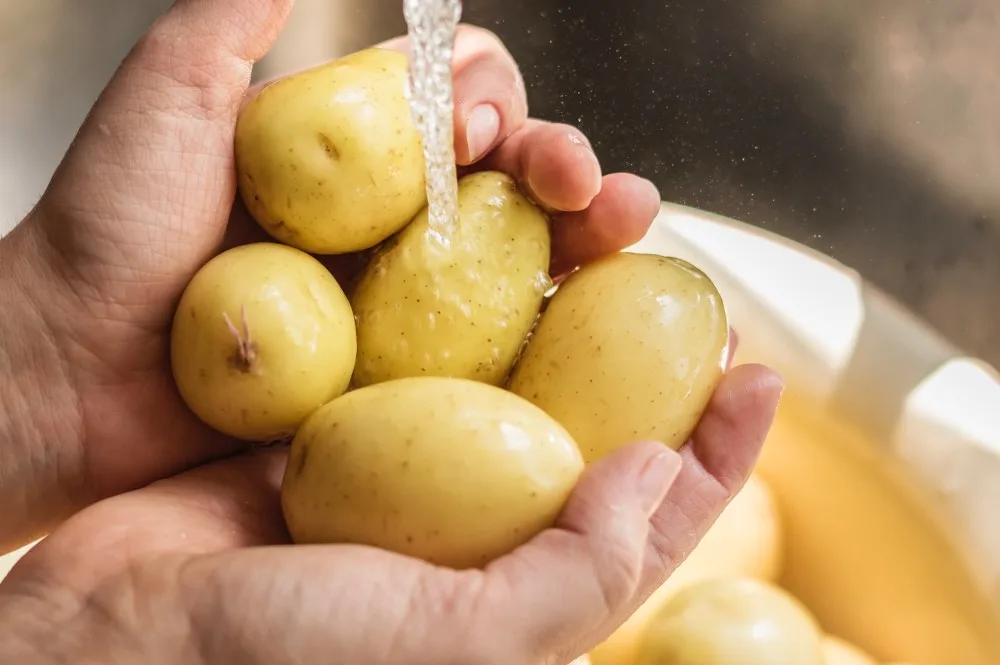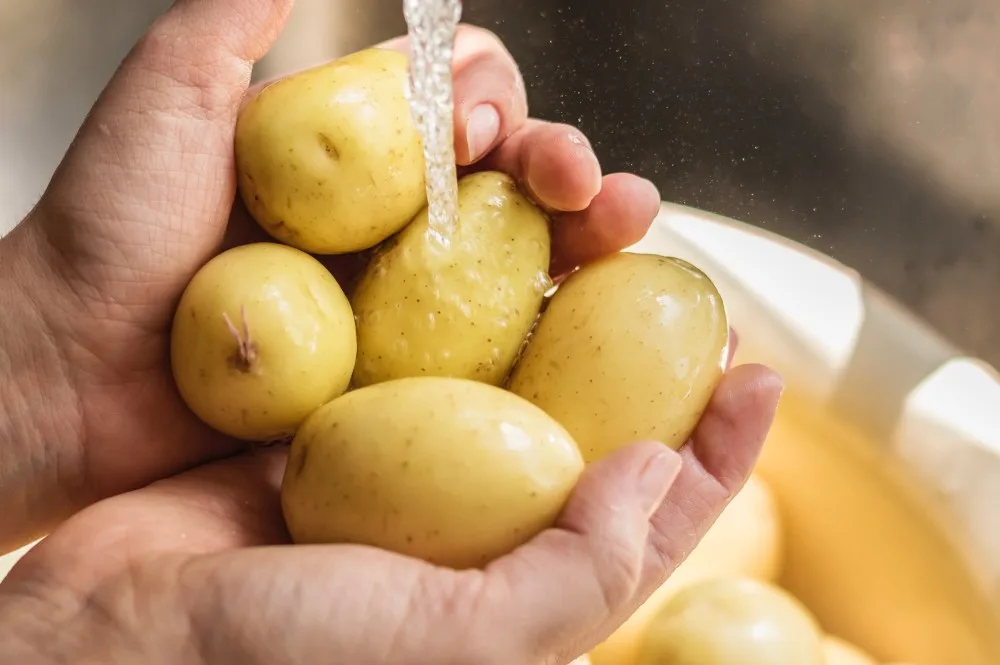
WASHING FRUITS AND VEGGIES: Worth it or worthless?
We asked a nutritionist if they work, or if you're better off with some other method.
Crop growers, big or small, spray pesticides on a daily basis in the hope of an abundant healthy harvest.
The fear for many is that these chemicals may stay on the food we consume and harm our health.
A variety of companies have created “veggie washes” that claim to remove any harmful pesticides from foods.
WHAT THE NUTRITIONIST SAYS:
“There appears to be limited data promoting the efficacy of produce washes in eliminating pesticides,” says nutritionist Diane Murphy. “While they might be helpful in washing off tiny surface microbes, studies seem to show that water alone can be just as effective, and potentially more effective if the produce is rubbed while being washed.”
If peace of mind is what you are looking for, these washes may do the trick! However, there are better ways to ensure you are eating clean.
“Buy organic when you can,” says Murphy. “With any fresh produce, wash and rub your fruit and veggies thoroughly.”

DOES PEELING THE SKIN HELP?
Some consider peeling the skin of fruits and vegetables helpful in removing pesticides. This can decrease the risk of you consuming any residue, but it's also a big loss when it comes to your fibre intake.
“As a nutritionist, I think it is important to eat the peels. They contain tons of fibre, and fibre will actually help to eliminate the pesticides from your body” says Murphy.
A DIY VEGGIE WASH
She also suggests a baking soda soak for any produce with skin.
“If you take about a litre of water and mix with one to two tablespoons of baking soda, you can create a bath for apples and pears, essentially anything with skin. Soak them for 10 minutes and rub clean. This proved to be more effective than the bleach solution used by farmers once the apples are picked.”
WHAT’S OUR GOVERNMENT DOING TO CONTROL PESTICIDES ON FOOD?
“As part of the assessment process before a pesticide can be used on a food product, Health Canada scientists must study whether the pesticide residues that may be found in or on food will be a concern to human health, and determine the safe levels of residues, called Maximum Residue Limits, or MRLs," Canada's health agency says on Canada.ca.
The government has set the residue levels far below any limit that would pose a health concern. And these regulations are not just placed on homegrown foods but imports as well.
WHAT FOODS HAVE THE HIGHEST AMOUNT OF RESIDUE?
Each year The Environmental Working Group releases its dirty “Dirty Dozen” report, listing the top 12 foods containing the most pesticides.
The 2019 list: Strawberries, spinach, kale, nectarines, apples, grapes, peaches, cherries, pears, tomatoes, celery, and potatoes.
However, in Canada, 88 per cent of all fresh foods contain no pesticides at all.











